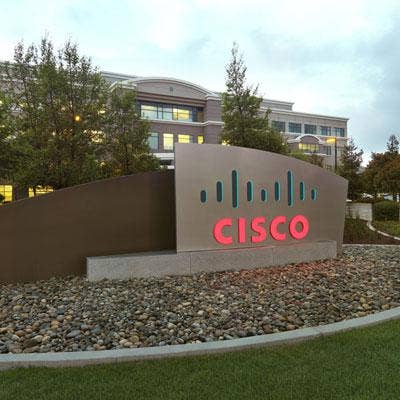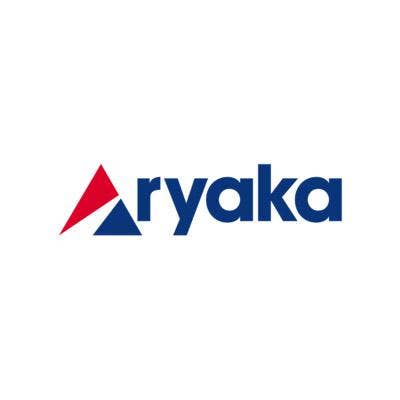Aryaka CEO: Cisco And Juniper Aren't Up To The SD-WAN Challenge

Aryaka CEO Sounds Off
Aryaka President and CEO Shawn Farshchi is confident that his company will come out on top in the fast-growing software-defined WAN market, predicting industry consolidation ahead.
"We went for not being something that augments the technology, we replace the technology. That's why you're going to see us grow organically like crazy," said Farshchi, in an interview with CRN. "Cisco IOS or Juniper [Networks] Junos OS, they cannot change any of that stuff that they've built because they are on the opposite – 180 degrees – of SD-WAN."
Farshchi talks to CRN about Aryaka's technology differentiation, channel enablement, Cisco iWAN and whether he views SD-WAN as an end-to-end or best-of-breed play.

Do you view SD-WAN as a best-of-breed play or part of an end-to-end solution?
When you talk to CIOs, they basically are continuously moving their applications to the cloud. Even the computing side is moving to the cloud with Azure and AWS. So mostly they don’t have application developers, they don’t have admins – the only people left are the network people. What they want is the network to be delivered as a cloud. They are not looking for anymore hardware at the edge.
[When] you buy a Cisco device, you still have to buy management software from it – just on and on and on. So we take care of it anywhere in the world, end-to-end. The customer has to worry about nothing.

Do you see consolidation coming to the SD-WAN space?
Consolidation is going to happen. You have a lot of legacy companies out there who have been in the networking world for a long time and developed their own operating system. Cisco IOS or Juniper [Networks] Junos OS, they cannot change any of that stuff that they've built because they are on the opposite – 180 degrees – of SD-WAN. In SD-WAN, you break out the network into pieces so you can optimize it at different layers. In their case, it's all one package. So they try to acquire companies to add on – it's a bolt on, rather than integration.
Companies are going to come up with a niche play, then somebody's going to come buy it. In the case of Aryaka, we are replacing a lot of those guys. We went for not being something that augments the technology, we replace the technology. That's why you're going to see us grow organically like crazy.

Where do you see these legacy networking vendors having trouble?
Juniper, for example, is running around trying to find out what to do. They're getting beaten up by the teclos, telling them, 'Hey your MPLS is dead. What are you going to do for me?' They're running around trying to figure it out. I guarantee you Alcatel [now Nokia], Huawei – all these guys are trying to figure out what to do with it. So consolidation is going to happen.

What are your thoughts on Cisco recently closing its $610 million acquisition of SD-WAN startup Viptela?
With Cisco, Cisco already had iWAN. There was iWAN version 1 that came out. That didn’t work at all. They came out with iWAN version 2. There was a joke going on that the instruction manual for installing iWAN 2 was about two-inches thick. So everybody figured out very quickly that you can't install iWAN 2 unless you buy more software to put on top of it to manage it.
So Viptela has completely different routing capabilities. It has much more routing capabilities than Cisco. So Cisco bought them, they're not going to use their routing capabilities because they're not going to change IOS. They just going to use Viptela's management software.

So some SD-WAN vendors have been coming to Aryaka seeking a partnership?
I can tell you that some of these SD-WAN players have come and approached us for partnership because they have the same problem. They have to hang off of somebody's network. They cannot sell their hardware unless they connect to the network. So they have approached us for interoperability.
Are you looking to form some type of partnership with these SD-WAN vendors?
In our case, we look at it and say, 'I can add a lot of value to their side of the house, but they have not been able to articulate what value they provide to us.' Because if they use Aryaka, you don’t need SD-WAN at the edge from any of these players in the market.

What is Aryaka's big SD-WAN differentiator?
Everybody else in the market has created an edge device; this is a hardware-based solution. … A lot of SD-WAN players are coming in, and there's mostly focused on what we call the bandwidth aggregation. It's more about how do you augment the traditional MPLS or VPN (virtual private network) technology. We went completely the other way. We decided that just like anything else that's changing in the in the IT world, everything is moving to the cloud. So the intelligence has to be in the middle mile, rather than the last mile. We created our end-to-end software-defined global network that takes care of everything from one side to the other, including in the middle, using our own private network rather than relying on the internet or MPLS.

What are the issues with MPLS?
With customers, the problem is MPLS. MPLS is just a Layer 3 type technology, which provides a pipeline, but it's up to you to figure out what to do with it. In our case, we care about the application. So we have services that focused on the application – voice, video, data. We take the application, and as a part of that, you get global connectivity that comes with it. That the biggest differentiator for us.
Ninety-nine percent of the deals we deal with, we don’t compete with SD-WAN hardware players. We compete heavily with MPLS … You can [either] sell MPLS with a SD-WAN at the edge or top of it, or you can come to Aryaka where you can take out everything. You don't need any more edge devices, you don’t need MPLS.

How are you enabling channel partners to sell SD-WAN? Because it's a different type of network discussion, right?
Very much so. We are an extremely channel-centric company. More than 80 percent of our bookings come from partners. These are the channel partners, agents in the U.S., resellers in Europe, Asia-Pac – I could go on and on. We have a multi-prong approach. We do a lot of webinars and hands-on training. We have our system engineers who go to someone like CDW, we had to train all their sales engineers. We're doing that on a regional basis.

What does your sales force offer partners?
We don’t have sales people we have PSDs, partner sales directors. My partner sales directors are meeting with our partners every day. Some of them have five appointments per day in a region, meeting with partners and agents around the country. They're there to help the partners, look at the deal, make sure they close them. We take care of everything for them.
We're training the partners to walk into a IT shop and talk about how we solve their business execution. Every single CEO is demanding that they want all employees to be on the same platform, use the same technology and engage the business. Traditional networking does not address that, but we do.

Can you elaborate on the issue of people not being on the same platform?
If I roll out, for example, Office 365 and all my employees in Asia cannot access Office 365 – I'm not on the same platform. There's are countless similar examples. If I roll out Slack, and Slack doesn't work in Taiwan or the Philippines, that's a problem. So we're training our partners to walk into customers and talk about, 'What business to do you run? Are you running RingCentral around the world? Are you running 8x8? I can solve your voice quality anywhere around the world using Aryaka.' They have no other solution that can do this.

You recently launched SmartACCESS, touting it as the first clientless SD-WAN solution. Talk about SmartACCESS?
We came up with this clientless SD-WAN so that you can get mobile devices connecting to our closest point of presence. Because when you put in Aryaka on your VPN on your mobile device, it finds the closest presence, jumps into our network and substantially accelerates the application performance. So you can run a full-fledged voice, video, data on Zoom or [Cisco] WebEx on Aryaka, and the performance is night and day. But the most important part is all these VPN gateways. IT shops have sold a lot of VPN gateways around the world because they could not backhaul people to authenticate it. With Aryaka, you only need one [vendor] … We talk to customers with 30 VPN gateways around the world. We can basically use their VPN gateway, and they don’t need to make any changes, except reduce their cost and get better performance on the mobile users.

What’s your message to the channel community on the opportunity in SD-WAN?
For SD-WAN, the concept is fantastic. How you get it to the market is the most critical aspect. The hardest part is what we are doing, which is saying, 'Just use it. Consume it. You can get rid of your router. Put an Aryaka on-premise box in; then you don’t need a router, you don’t need a firewall. Just point your server to us, we'll take care of everything else.' SD-WAN is going to go through evolutions very quickly. You're going to find out that buyers of the hardware are going to be less, than buyers of the services – the services that run in the middle, not at the edge. And that's what we do.